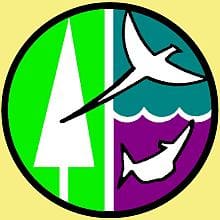EHD Continues to Kill Nebraska Deer
OutdoorHub 09.13.12

Epizootic hemorrhagic disease (EHD) continues to kill deer across much of Nebraska. EHD is suspected in the reported deaths of more than 2,200 deer this year.
While the disease typically occurs in low levels annually, this year’s outbreak appears to be significant, according to the Nebraska Game and Parks Commission.
The total effect of the disease on the deer population will not be known until the close of the deer seasons. Biologists then will look at hunter success to determine the portion of deer mortality that may be attributed to the disease. Game and Parks encourages hunters to hunt and harvest as usual. Some hunters can expect to see fewer deer in their area this fall, where others may not notice a change. There are no plans to modify 2012 deer seasons in response to EHD losses at this time. Deer populations typically have recovered quickly following past EHD die-offs.
The viral disease is spread by biting insects called midges and usually does not persist much beyond the first frost. EHD normally occurs in late August to early September when hot and dry conditions exist that are favorable for the breeding conditions required by the midges. This year it started in mid-July.
The virus does not infect humans or pets. Humans are not at risk for handling or eating venison from infected deer or being infected by a midge. If a hunter harvests a deer that appears sick, he or she may bring the carcass to a district office or conservation officer and request revalidation of the permit.
Cattle may be infected by the biting insects; however, few will develop clinical symptoms. These symptoms may be fever, lameness or oral lesions. Producers should seek the advice of a veterinarian if they encounter these symptoms in their cattle. Deer do not transmit this disease directly to cattle.
Deer killed by EHD often are found near water and sometimes show evidence of bleeding from the eyes, nose, or mouth.
Game and Parks remains interested in determining the extent of the disease and its possible effects on the deer population. The public should report any deer deaths that may be attributed to this disease to their nearest Game and Parks office: Alliance, 308-763-2940; North Platte, 308-535-8025; Kearney, 308-865-5310; Bassett, 402-684-2921; Norfolk, 402-370-3374; and Lincoln, 402-471-0641.
For more information on EHD, visit the web page of the Southeastern Cooperative Wildlife Disease Group from the University of Georgia at www.vet.uga.edu/scwds/general.php.

